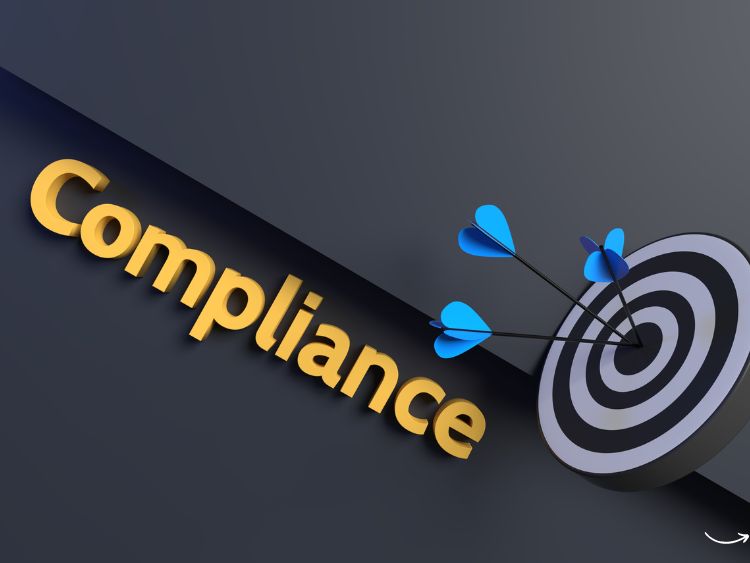Hey there! If you’re reading this, chances are you’re either a business owner, a manager, or someone who’s just curious about the ins and outs of corporate compliance. Let’s face it, “corporate compliance” might sound like a snooze fest, but trust me, it’s far from it. In today’s fast-paced business world, staying compliant isn’t just a legal obligation—it’s a key to success.
So, what exactly is corporate compliance? In simple terms, it’s all about making sure your company adheres to laws, regulations, standards, and ethical practices relevant to your industry. Sounds straightforward, right? Well, there’s a bit more to it. From preventing legal penalties to fostering a positive workplace culture, compliance plays a crucial role in shaping the future of your business.
In this article, we’ll dive deep into the world of corporate compliance. We’ll break down what it entails, why it’s important, and how you can implement an effective compliance program. We’ll also tackle some common questions and misconceptions along the way. Ready to get started? Let’s go!
What is Corporate Compliance?
Corporate compliance is like the rulebook for your business. It involves creating and enforcing policies and procedures to ensure your company follows all relevant laws, regulations, and ethical standards. Think of it as your business’s moral compass, guiding your actions and decisions.
Key Components of Corporate Compliance
- Legal Compliance: Adhering to all local, state, and federal laws.
- Regulatory Compliance: Following industry-specific regulations.
- Ethical Standards: Upholding ethical practices and corporate governance.
- Risk Management: Identifying and mitigating risks related to non-compliance.
- Training and Education: Regularly educating employees about compliance policies.
Why is Corporate Compliance Important?
Now, you might be wondering, “Why should I care about corporate compliance?” Well, there are several compelling reasons:
Avoiding Legal Penalties
First and foremost, compliance helps you avoid hefty fines, lawsuits, and other legal troubles. Regulatory bodies are always on the lookout for non-compliant companies, and the consequences can be severe.
Building Trust and Reputation
Compliance isn’t just about avoiding penalties; it’s also about building trust. Customers, partners, and investors are more likely to do business with a company that demonstrates integrity and transparency.
Enhancing Employee Morale
A strong compliance program fosters a positive workplace culture. When employees know that the company values ethics and fairness, they’re more likely to feel motivated and engaged.
Protecting Your Bottom Line
Non-compliance can lead to financial losses, not just from fines but also from damaged reputation and lost business opportunities. By staying compliant, you protect your company’s financial health.
Implementing an Effective Compliance Program
So, how do you go about creating a robust compliance program? Here are some steps to get you started:
1. Conduct a Risk Assessment
Begin by identifying areas where your company is most vulnerable to compliance risks. This could include financial reporting, data privacy, workplace safety, and more.
2. Develop Policies and Procedures
Once you’ve identified the risks, develop clear policies and procedures to address them. Make sure these documents are easily accessible to all employees.
3. Train Your Employees
Training is crucial for effective compliance. Conduct regular training sessions to educate employees about your compliance policies and the importance of adhering to them.
4. Monitor and Audit
Regularly monitor compliance activities and conduct audits to ensure policies are being followed. Use this information to identify areas for improvement.
5. Establish a Reporting System
Create a system for employees to report compliance issues or violations confidentially. Encourage a culture of openness and transparency.
6. Review and Update
Compliance is not a one-time task. Continuously review and update your compliance program to keep up with changes in laws and regulations.
Common Corporate Compliance Challenges
Despite your best efforts, you may encounter some challenges along the way. Here are a few common hurdles and how to overcome them:
Keeping Up with Regulations
Laws and regulations are constantly changing, making it challenging to stay up-to-date. To tackle this, subscribe to industry newsletters, attend seminars, and consult with legal experts.
Ensuring Employee Participation
Getting employees to buy into compliance programs can be tough. Make training sessions engaging and interactive, and highlight the benefits of compliance to both the company and the employees.
Managing Compliance Data
Tracking and managing compliance data can be overwhelming. Invest in compliance management software to streamline the process and ensure accurate record-keeping.
FAQs about Corporate Compliance
What happens if my company fails to comply with regulations?
Non-compliance can lead to legal penalties, including fines, lawsuits, and even criminal charges. It can also damage your company’s reputation and result in lost business opportunities.
How often should we conduct compliance training?
It’s recommended to conduct compliance training at least once a year. However, depending on your industry and specific risks, you may need more frequent sessions.
Can small businesses afford to implement a compliance program?
Absolutely! Compliance is important for businesses of all sizes. Start with the basics and gradually build a more comprehensive program as your company grows.
What are some examples of regulatory compliance?
Examples include data protection laws like GDPR, financial regulations like Sarbanes-Oxley, and industry-specific rules like HIPAA for healthcare.
Summary
Corporate compliance might seem daunting, but it’s an essential aspect of running a successful business. By adhering to laws, regulations, and ethical standards, you can avoid legal troubles, build trust, and protect your bottom line. Implementing an effective compliance program involves assessing risks, developing policies, training employees, monitoring activities, and continuously updating your approach.
Remember, compliance isn’t just a box to check—it’s a commitment to integrity and excellence. So, embrace it, invest in it, and watch your business thrive. Got any more questions about corporate compliance? Don’t hesitate to ask!





